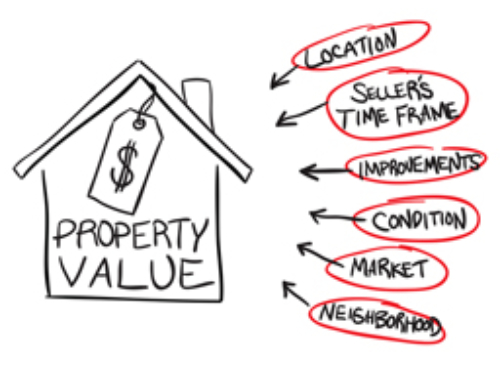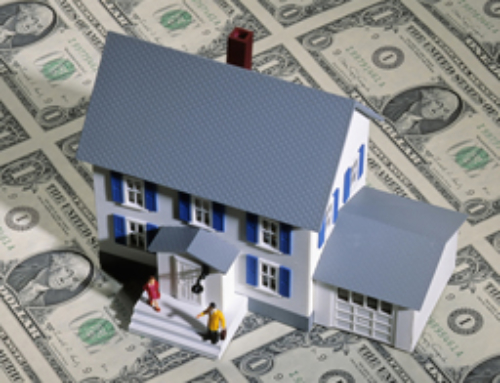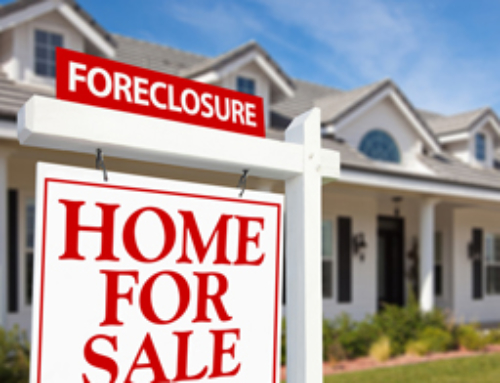 In this series, real estate and mortgage expert Steve Cook takes a look at housing market predictions for falling home values: the causes, the effects, why home prices are still falling, and what needs to happen to see home values improve.
In this series, real estate and mortgage expert Steve Cook takes a look at housing market predictions for falling home values: the causes, the effects, why home prices are still falling, and what needs to happen to see home values improve.
“The hurrier I go, the behinder I get,” said the White Rabbit in Alice in Wonderland. He’s not the only one who feels that way. Millions of homeowners must feel like they are in Wonderland when they check their homes’ value, which rises and falls from one month to the next for no rhyme or reason.
Today’s national average for home prices is more or less at the same place it was two years ago. At that time, all the experts were saying the recovery was in sight. Healthier home values awaited only an end to the foreclosure mess.
Well, today there actually is an end in sight to the foreclosure mess, but relief is still in the distant future. For nearly two years, the number of homes going into default has slowly declined, though you wouldn’t know it from the “bank owned” for sale signs that still decorate neighborhoods.
There is still an extensive inventory of foreclosures for sale and the shadow inventory, though 22 percent smaller than it used to be, is still huge. A primary reason for the glut is that lenders are processing foreclosures at a snail’s pace to protect them from liability resulting from practices like those that caused the Robogate debacle.
As a result, it takes 20 months to process foreclosures, which extends the pain of the depressive effect they have on local home values. However, if current trends continue, at some point in the future even the pokiest lender will deplete its REO inventory and the Foreclosure Era will quietly come to an end and never return. Since stricter standards were enacted after 2006, mortgages underwritten after that time should result in many fewer defaults.
However, instead of breaking out the bubbly, the experts are more pessimistic than ever. To wit:
- In a recent FICO survey, nearly half of bank risk managers—the folks who were asleep at the wheel during the subprime boom—say they do not expect housing prices to return to 2007 levels before 2020. Some 73 percent believe mortgage defaults will remain elevated for at least five more years, and 46 percent expect mortgage delinquencies to increase over the next six months.
- Another survey of more than 100 housing economists and real estate gurus had a glimmer of good news—their consensus is that home prices will decline only 2.53 percent this year. Looking longer term, however, prices will improve at a growth rate of only 1.1 percent a year through 2015. Today, housing prices are 31 percent below the price peak in late 2006, according to the Case-Shiller index. If prices improve only 1.1 percent a year, that’s a long, long ladder to climb.
- The first 2012 forecast from a leading real estate data provider has even more reason for alarm. Clear Capital, which provides data to banks for real estate asset valuation and risk assessment, predicts U.S. home prices will drop 1.6 percent over the last three months of 2011, and another 3.2 percent by the end of Q1 2012. This projected drop through Q1 2012 moves prices closer to Q1 2011 prices, the lowest level since the downturn began in 2006. No, your eyes are not deceiving you. That means we’ll be flirting with a triple dip in home prices.
So what’s wrong with this picture? Home prices are at a generational low. Mortgage rates lately hit an all-time record low. Every local market is full of bargains galore. Why aren’t people buying houses?
Come back to the blog tomorrow when we will look at the forces in the economy preventing people from buying houses.
READ MORE:
Time to Refinance?
Housing Market Predictions: Good and Bad News For Real Estate
How to Avoid Paying Private Mortgage Insurance
Property Taxes: 6 Ways To Get Your Property Taxes Reduced
Steve Cook is Executive Vice President of Reecon Advisors and covers government and industry news for the Reecon Advisory Report.
Cook is a member of the National Press Club, the Public Relations Society of America and the National Association of Real Estate Editors, where he served as second vice president. Twice he has been named one of the 100 most influential people in real estate. He is a graduate of the University of Chicago, where he was editor of the student newspaper. In addition to serving as managing editor of the Report, Cook provides public relations consulting services to real estate and financial services companies, and trade associations, including some of the leading companies in online residential real estate.





